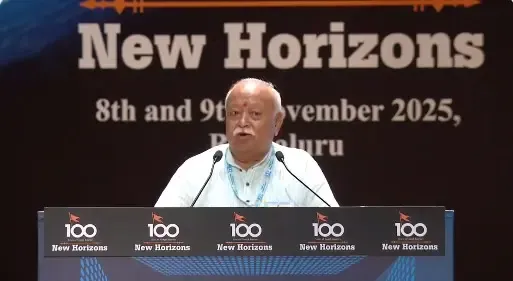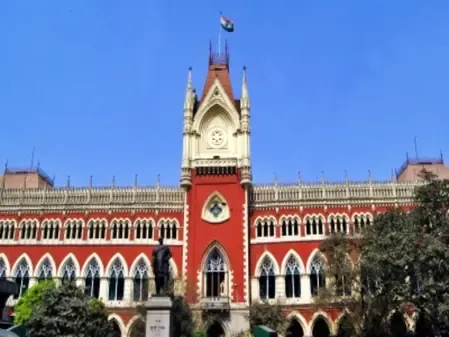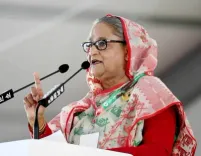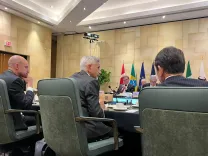Is it true that the RSS operates without external funding?

Synopsis
Key Takeaways
- RSS operates independently without external funding.
- Volunteers contribute significantly to the organization.
- The Sangh aims to unite Hindu society for collective strength.
- Misunderstandings about the RSS often arise from hearsay.
- Authentic information about the Sangh is crucial for informed discussions.
Bengaluru, Nov 8 (NationPress) The Rashtriya Swayamsevak Sangh (RSS) asserted on Saturday that it operates without accepting any external financial aid.
While addressing a significant audience in Bengaluru during a two-day lecture series marking the centenary of the Sangh, RSS Chief Mohan Bhagwat emphasized, "We have never accepted funds from outside sources. Our volunteers contribute annually, often giving more than they can. Even those who struggle financially make sacrifices, such as forgoing certain essentials like pulses for a year to save money for the Sangh."
"To manage the Sangh, we do not take a single paisa from outside. This independence ensures that we are not subject to external pressures. We communicate only the truth and express ourselves freely," he stressed.
"Men, money, and ammunition are the three vital components, and we are self-sufficient in all three," Bhagwat added.
He also reflected on the challenges faced by the RSS a century ago.
"When the Sangh was established, the concept of Hindutva was not widely embraced. Dr. Hedgewar, the founder of the RSS, was not a household name across the nation. It was his unwavering commitment, along with that of dedicated workers, that shaped the Sangh into what it stands for today. The Sangh has since gained credibility," the RSS Chief stated.
"Another critique we have encountered is the portrayal of the Sangh as a threat or harmful entity. However, such opposition is often superficial; true sentiments lie with us," he remarked.
"Our mission is to harmonize the entire society. We are not here to point fingers. The objective of unifying the entire Hindu community is often misunderstood. The RSS does not seek power or status; our sole aim is to unite and organize society for the glory of Bharat Mata," he clarified.
"This gathering aims to disseminate information about the Sangh. For over a decade, the RSS has been the subject of heated discussions. Upon examining these discussions, it becomes evident that they often stem from misconceptions rather than facts or evidence," he added.
"The Sangh is a distinctive organization. There is nothing comparable to it globally. One cannot grasp the essence of the Sangh through conventional methods of understanding, as it stands alone," he noted.
"When individuals attempt to comprehend the Sangh, they frequently lack accurate information, which breeds misunderstandings. This has been a recurring issue. Therefore, in 2018, it was decided to share authentic information about the Sangh. The goal is not to persuade anyone but to present the facts. Support or opposition should be rooted in reality, not mere perceptions," Bhagwat explained.
"First, it is essential to properly understand the Sangh. Many of its well-wishers claim it was established as a reaction to certain events, but that is inaccurate. The Sangh was not a product of reaction or resistance; it was created because Hindu society required organization. This societal organization is not aimed against anyone," he emphasized.
"The Sangh was conceived and implemented out of this very necessity," he concluded.









